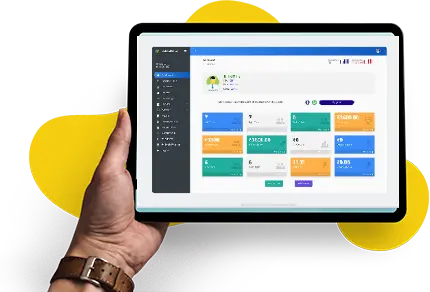The world is changing rapidly, and industries' reliance on digital technologies is growing. Businesses are swiftly adapting to this transition thanks to automation, which allows them to complete activities using technology with minimum human intervention. More than 49% of firms are now using marketing automation, with over 55% of B2B companies utilizing automation tools.
What does this mean for direct selling, a business model built on personal relationships and trust between the salesperson and the customer? Experts in the industry are concerned that automation will replace human intervention in these business partnerships.
Direct selling is fundamentally based on individualized interactions, active listening, and the capacity to adjust to the requirements and preferences of individual clients. Can automation truly replace the human touch in this business model? Let’s find out.
Understanding Automation in Direct Selling

There is no doubting the enormous value that automation provides enterprises. It can alter many areas of direct selling and assist in streamlining the sales process. Overall, automation contributes to optimizing processes, relationships, and revenue. All repetitive and manual operations in your business process can be automated.
Here are some examples of direct selling automation:
Onboarding process
Customer services
Marketing and sales
Accounting and finance
HR processes
Data entry
Purchase orders
Management
Why should you automate your direct selling business?
Key benefits of automation in MLM businesses include:
-
Boost efficiency: Distributors are responsible for various duties, most of which are repetitious, such as lead generation, customer assistance, and follow-up. Automation simplifies these operations, providing distributors more time to focus on building customer relationships and increasing sales and revenue. For example, telemarketers at Atarax Services , a supply firm based in California, increased their monthly sales from one to three. How? They implemented an automated method to increase the number of calls they made each day.
-
Improve accuracy: Direct selling involves multiple calculations and complex business processes. Automation can reduce manual errors and maintain consistency when computing bonuses or commissions, resulting in better outcomes and increased sales.
-
Better data management: Automation simplifies data collection and analysis for organizations, providing insights into client behavior, purchasing habits, and preferences that inform future sales efforts. It can also gather information from employees, process workflows, and distributors to optimize overall business processes.
-
Increased conversion rate and scalability: According to an eMarketers benchmark study, B2C organizations deploying automation have experienced up to 50% conversion rates. Automation allows you to scale your organization and provides the flexibility it needs as it grows in terms of resources and various business processes.
Limitations of automation in direct selling
Automation in MLM business may appear to be the greatest thing since sliced bread. However, this section will discuss the difficulties and restrictions you should know.
-
Security concerns: Even though automation can be an excellent tool for gathering and analyzing company data, there are issues regarding data privacy and security, particularly when it comes to sensitive consumer information.
-
Cost: Implementing automation demands an initial investment in technology and equipment and continuing maintenance and support expenditures, which may be too expensive for some firms.
-
Limited creativity: Salespeople can benefit from automation by simplifying their operations and automating their tasks. It cannot, however, substitute the creativity and innovation required to design a fresh sales approach.
The Human Essence in Direct Selling

Direct selling is the practice of selling goods and services to customers directly rather than through a typical retail outlet. It embodies the human essence, requiring individuals to use their unique, creative, and interpersonal skills to establish customer relationships and sell products.
In direct marketing, the human essence reveals itself in a variety of ways. For starters, direct selling necessitates an entrepreneurial mindset, which entails taking risks, being innovative, and accepting personal responsibility for one's success. Because of rejection, competition, and changing market conditions, direct sellers must be motivated, persistent, and adaptable.
Furthermore, direct selling is a highly social activity that relies on personal connections and relationships. As a result, direct sellers must be skilled at establishing rapport and trust with customers and understanding their requirements and preferences. Direct sellers must have excellent communication skills, empathy, and the capacity to listen to and respond to feedback to meet these needs.
The human essence boosts the success of direct selling businesses, and there are various advantages to effectively harnessing it:
-
It assists direct sellers in developing strong client relationships, which results in recurring business, excellent evaluations, and word-of-mouth referrals.
-
Human interaction allows direct sellers to understand their clients better. They can then use this information to create a customized sales pitch, boosting the likelihood of a successful transaction.
-
Direct sellers enhance their conversion rate by enticing customers to buy when they demonstrate their passion and belief in a product. This step is only conceivable because of the human essence.
While the personal element in direct selling has numerous advantages, it also has significant drawbacks.
-
Time-consuming: Developing excellent customer relationships and offering unique client experiences can be taxing. Direct sellers who devote too much time to one client may be unable to reach other potential clients, limiting sales.
-
Subjectivity: As each customer is unique, what works for A may not work for B. Direct sellers who depend too heavily on intuition and human traits may miss out on sales chances that require a more objective approach.
-
Inconsistency: The human essence can be unpredictable, and direct sellers may not be able to deliver the same personalized service to every consumer. This inconsistency may have an impact on the sellers' ratings and reviews.
The Balance Between Automation and the Human Essence in Direct Selling.

Progress allows for the development of more automated and intelligent machines with increased capabilities, which opens up new roles for humans and machines. These advancements might make direct selling easier and more enjoyable. However, automation cannot completely replace the human essence.
Automation is a powerful tool for streamlining processes, improving customer connections, and providing data-driven insights. However, the human element is still necessary to develop strong client relationships, demonstrate the product's value, and offer tailored services.
Finding a balance between the two has become increasingly important as automation grows more prominent in direct marketing. Direct sellers must find a way to distinguish themselves from the competition by combining personal attributes with automation.
Other reasons to find the right balance are:
Direct sellers can increase efficiency by automating time-consuming operations and concentrating their human capabilities on high-value activity.
You can boost sales by balancing automation and the human essence. Automation can assist direct sellers in identifying potential customers and making data-driven decisions, whereas human essence can assist in convincing those clients to make a purchase.
By balancing automation and human essence, you may improve your consumers' experiences. While automation streamlines your operations, the human element adds empathy to create one-of-a-kind and memorable client experiences.
Overall, automation and human essence should function together. You cannot sacrifice one for the other; otherwise, you will miss out on significant benefits that will help your company succeed. Many businesses recognize this principle and are collaborating with automation and human nature.
Amazon is an excellent example of a company that understands the value of automation and the human essence. While Amazon has continued to automate its warehouses and delivery processes, it has not lost sight of its human interactions. The multibillion-dollar corporation employs thousands of workers to handle customer support inquiries and deliver packages.
Google also understands the interplay of these two ideas. The corporation heavily relies on automation in its search algorithms and other technology but also acknowledges the value of human input. Google employs thousands of employees to analyze and enhance search results, and it places a high value on user privacy.
Strategies for balancing automation and the human essence
Automation tools and software aren’t the enemies–with proper use and application, the sky could be your starting point. Therefore, businesses must find a middle ground between automation and the human essence, as it will boost success and speed up operations. Here are some pointers to help you find what works for you:
-
Identify which areas of your business can benefit from automation. If you spend too much time on repetitive or routine tasks, consider automating them. But remember that human involvement is still required for customer support and creative tasks.
-
Because automated tools are altering how we conduct jobs, businesses should invest in training and development to assist employees or distributors in adapting to this change.
-
As automation grows more widespread, organizations must ensure that their systems are transparent, secure, and follow applicable legislation.
Factors to Consider When Using Automation in Direct Selling
Your direct selling company can cultivate its goal of building relationships with automation. When deciding whether to automate a particular process, consider how it will strengthen the bonds between your company and your distributors and customers.
1. Marketing automation
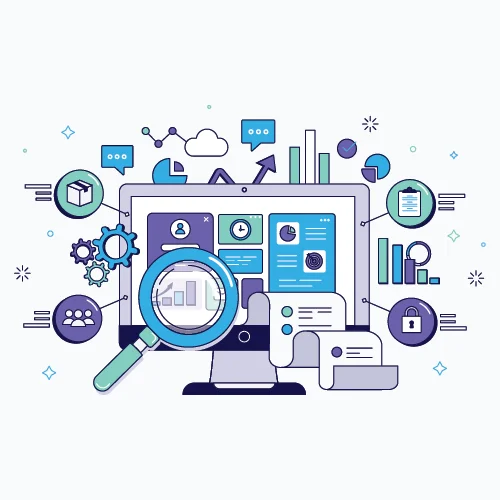
Direct selling and multi-level marketing organizations that focus heavily on establishing connections with clients and prospects can profit immensely from marketing automation. The marketing automation industry was worth $11.4 billion in 2017 and is expected to be worth $25.1 billion by 2023.
These organizations generally have vast customer bases and sophisticated sales methods, making them challenging to manage manually. Marketing automation technologies can help you save time, automate monotonous operations, and increase marketing effectiveness. Automate your email and social media marketing methods to produce leads, saving you time in selecting the best prospects.
2. Sales process automation

Automating your sales process can help simplify various operations, such as prospecting, conversion, and follow-ups. Through automated analysis, advanced sales process automation can assist in predicting future sales. However, because sales is a human-centered activity, technology cannot replace your distributors. But it can assist distributors in saving time, increasing productivity, and improving reaction time.
3. Onboarding automation
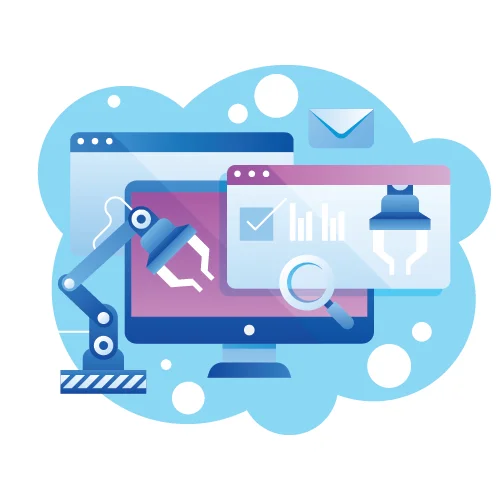
You should make new distributors or sales representatives feel welcome when they join your company – onboarding automation can be helpful in this situation. You can send them automatic welcome emails that introduce them to the company and give them an outline of the products and services. Onboarding automation can enhance member activation rates by providing individualized support and dashboards.
4. Training Automation

Distributors are essential to the success of direct selling businesses. As a result, they require your time and attention to keep them involved and enhance their talents. Automation can assist in creating interactive training modules to provide self-paced training to new distributors. These modules may contain videos or quizzes.
5. Commission payments automation
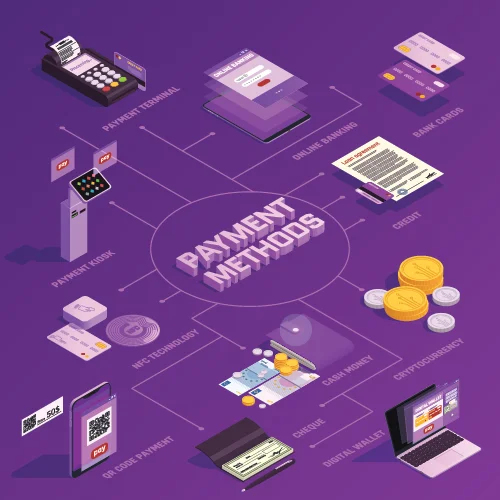
Direct selling companies may have hundreds of distributors to whom commissions are paid. Manually calculating payments for each distributor can be time-consuming, and errors and miscalculations are unavoidable. Companies may decrease manual errors, provide precise payments, and increase distributor trust by utilizing commission payment automation.
6. Content automation

In today's world, when AI is trendy, you may be tempted to use bots to generate content. However, there is a significant distinction between bot-generated content and human-generated content. Your audience and distributors still require you to talk to them in terms they can understand; here is where the human touch comes in. However, automation can help you schedule and deliver cross-channel content, share customized content, and track and evaluate content.
7. Social media automation
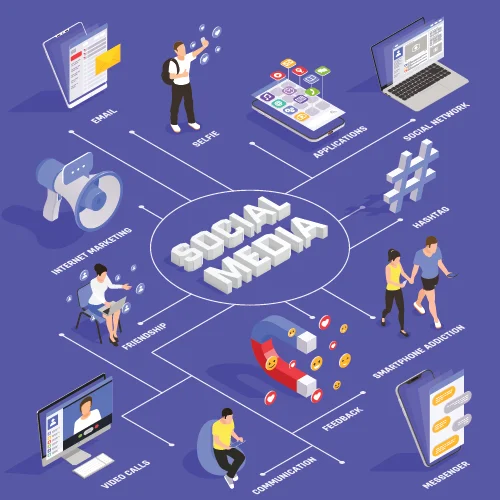
Customers hang out on social media, waiting for the perfect thing to drop that will revolutionize their life. As a result, it is not surprising that the majority of marketers use this media to promote items and services. Direct selling organizations can benefit from social media automation by analyzing each platform and providing insights into trends and patterns. Data from social media automation solutions can help you manage, schedule, and distribute ads and campaigns on each network at the right moment.
8. Customer relationship management (CRM) automation
_automation.webp)
A well-designed CRM MLM software can work wonders for your company. They help in the management of customer relationships, the monitoring of interactions, and the analysis of consumer behavior. They can also automate lead generation and follow-up operations, as well as track key performance indicators in real time.
The Future of Automation and Direct Selling

Technology will continue to improve, bringing innovations that will transform industries, such as direct selling. According to experts, automation's involvement in direct selling is expected to rise rapidly in the future years.
Some forecasts are as follows:
Increased use of chatbots and automated systems to assist with customer service and engagement.
Automated data collection and analysis techniques assist direct selling organizations in developing personalized, focused campaigns.
More direct-selling organizations will use automation to streamline their ordering and fulfillment operations.
However, the question remains about how automation will affect the human element in direct selling. According to experts, the impact might be severe because the increased use of automated technologies can lead to a decline in the human touch that distinguishes this business model. Customers' relationships may deteriorate if reps become less involved in the customer experience and sales operations as a result of automation
Direct-selling companies should invest in automated systems since they can increase productivity and efficiency but should maintain the human element of the business. Train reps in new abilities that will allow them to compete as the world changes while still providing personalized customer service.
Conclusion
The direct selling business model requires a careful balance of automation and human essence in today’s world. While automation aids in automating company operations, the human element adds creativity and a tailored approach to client interactions. So, to address the question: “Is automation replacing human essence in direct selling?” No. Both automation and human essence can assist you in achieving success in the direct selling market. Be sure you do not forfeit one for the other.
FAQ:
1. What direct selling business processes can I automate?
Consider automating repetitive and routine tasks that consume a lot of your time. Some components of your marketing process, such as social media or email marketing, can be automated. Because the onboarding process is also repetitive, you should consider automating it. Commission payments, distributor training, and sales are other operations that can be automated.
2. How does automation increase sales?
Salespeople have insights at their fingertips thanks to marketing automation. This data enables them to create relationships more quickly and, as a result, respond to leads more swiftly. Overall, automation generates high-quality and well-organized leads, increasing efficiency and driving more revenue for your company.
3. What are the benefits of MLM automation?
It improves accuracy, dependability, and productivity. Additionally, sales automation can boost the morale of your distributors, resulting in increased revenue.


